mother! and the Fourth Wave
October 6, 2021 By Go BackI’ve written about Darren Aronofsky’s mother! before, and I thought I had a handle on this chaotic nightmare about the artist, the muse and the Earth dying by humanity’s hand. Almost four years later, I wondered if I would have a different perspective since my first experience with the much-debated film. When it premiered at TIFF in 2017, critics were divided. Some chose the dramatic route of banishing all who raved about mother!, drawing a line in the cinematic sand. In my case, I went to the theatre to see the film and was warned by the staff that I could get a refund if I left before the 30-minute mark since many unsuspecting viewers thought it was your run-of-the-mill family drama. The frenzy and debate have since subsided over the years, and I still enjoy mother! but there is a new understanding now, especially in current times.
Mother (Jennifer Lawrence) and her husband, the poet, or Him (Javier Bardem), live in a large, renovated house. She has restored it to a beautifully crafted home in a field surrounded by a forest. It’s peaceful and a perfect backdrop for Him to create his next great book. While he struggles for inspiration, even though Mother is his muse, he cannot write. A Man knocks at their door (Ed Harris), mistaking their house for a bed and breakfast, and is welcomed in by Him, much to Mother’s surprise. He stays the night, and the next morning, his wife, the Woman (Michelle Pfeiffer), arrives, causing a bit of chaos, and she questions the couple about their childlessness and relationship. The small intrusion becomes something bigger, as the Man and Woman become the catalysts for a breakthrough in Mother and Him’s marriage, a pregnancy, Him’s return to glory, abuse of power, and the absolute disintegration of the environment around them.
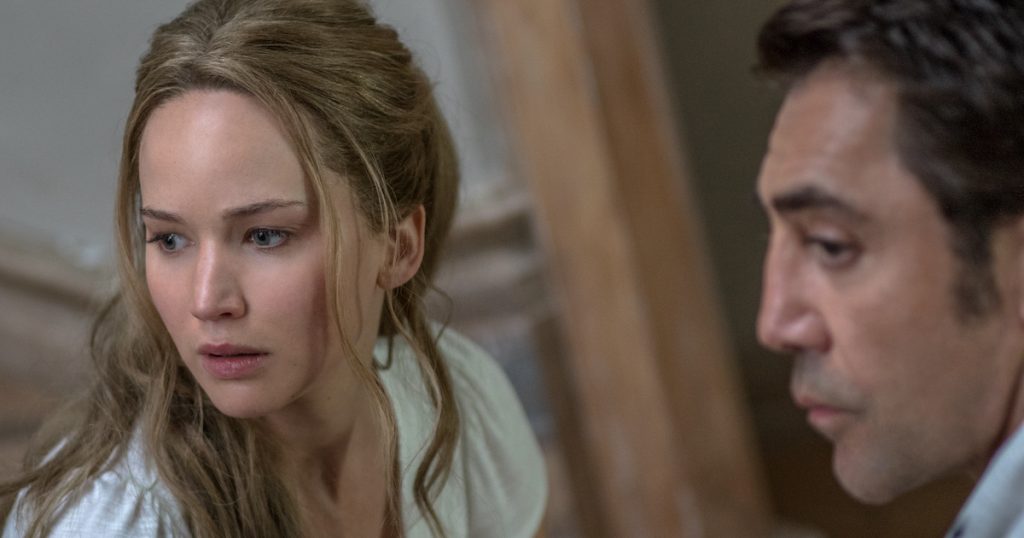
There is so much going on in mother!. It isn’t easy to give a synopsis that isn’t five paragraphs long. Suffice to say that each action causes a reaction, from the Man visiting and revealing himself to be Him’s superfan, the Man’s wife who then leads their sons to battle to the death in Mother’s living room. Their intrusion is the re-enactment of Adam and Eve, their fall from Eden, and their sons Cain and Abel. The dialogue is loaded with words like “paradise” and “apocalypse”; and the literal and barbaric devouring of Mother and Him’s baby is an unholy communion for the obsessed. No religious allegory would be complete without a full-fledged zealot, played by Canada’s favourite character actor Stephen McHattie, who leads Him’s frenzied fans and worshippers to a makeshift altar of creativity.
There’s a bleak dream logic at play here as well. The constant barrage of intruders, Mother’s pleas for them to leave her home, and the insanity that ensues doesn’t make sense unless you’re in a dream. Aronofsky intentionally puts us off-kilter, creating a melange of styles and themes like the dying Earth and sacrifice while paying homage to classic films that create growing tension like Rosemary’s Baby and even technically like Alejandro González Iñárritu’s Birdman. He also gives us a critique of the artist and his muse, perhaps manifesting Aronofsky’s relationship with Lawrence, a life imitating art theme that raised the eyebrow of many, even though he wrote mother! before his relationship with his lead. It might also explain the exquisite photography by Aronofsky’s loyal cinematographer, Matthew Libatique, capturing the glowing Lawrence rambling through the shadowy hearth and home.
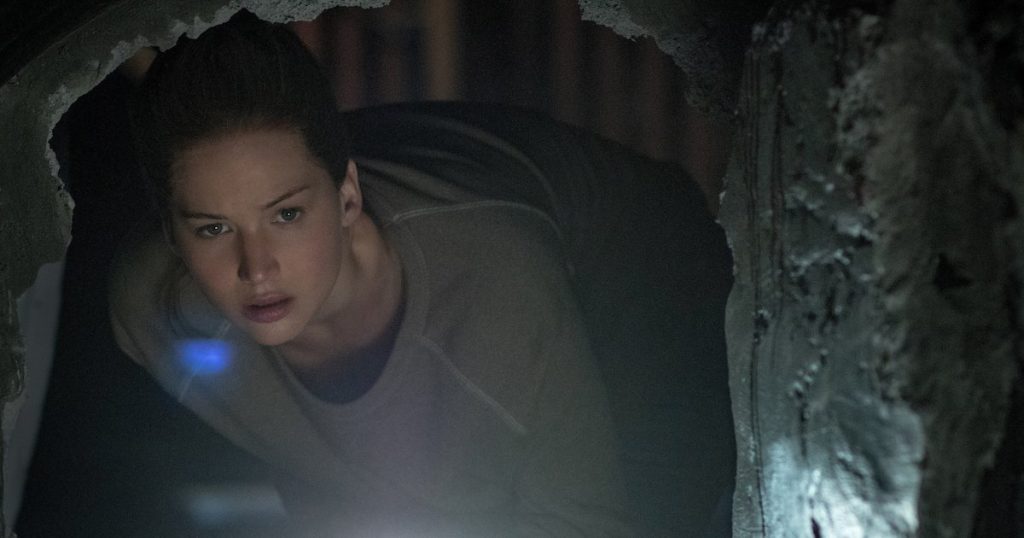
I pulled all of those themes for my first review of the film, and I know there is a cornucopia of analysis out there, even down to the yellow powder Mother drinks to calm her nerves, perhaps echoing “The Yellow Wallpaper” written by Charlotte Perkins Gilman in 1892. But It’s funny how our perception of a film changes over time. Revisiting movies gives a whole new meaning to them, especially now, with the pandemic still affecting our lives a year and counting after its discovery, affecting lives in a major way. The meaning mother! has now, with the eyes of someone having been under lockdown for so long, made the film more poignant.
These days, the chaos lurking outside via our TVs, phones and over the internet is very close, too close, to the chaos Mother experiences. Watching people die before our eyes, feeling just as helpless as Mother as she tries in vain to control the flow of destruction coming through her home. Could it also represent the second-hand suffering of the white upper-middle-class as they watch Black Lives Matters protests, the fight for Indigenous rights, the horrors of Afghanistan, and countless global plights amidst the perils of the pandemic? Things they could easily turn a blind eye to in the before-times but now have to face the true reality of the destruction just outside their door, outside the “paradise” they’ve created for themselves that isn’t so idyllic? There is no better example than when Mother is beaten in such a graphic manner, making us wince with its brutality, a reversal of the racially motivated attacks of the last few years.
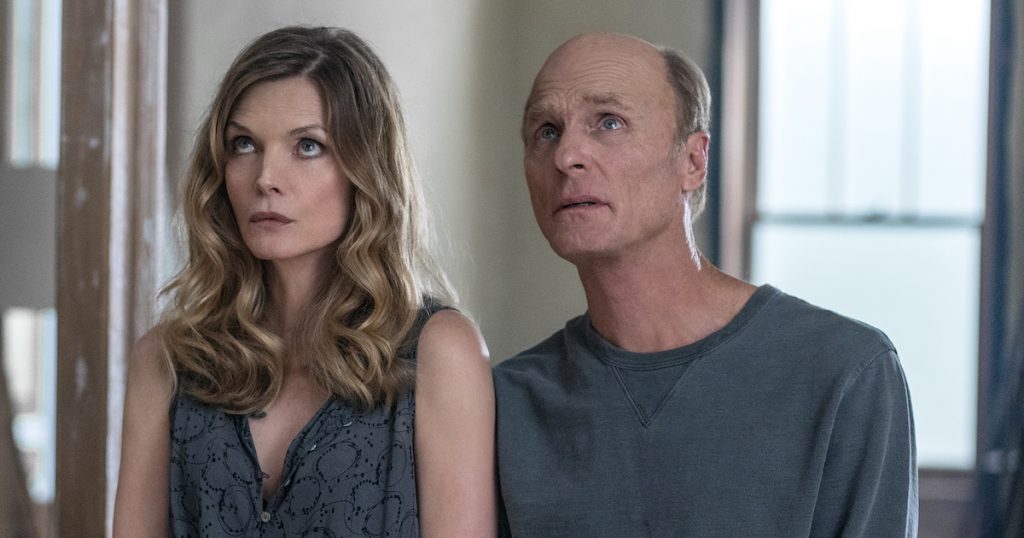
Many turned to religion during these difficult times, praying and waiting for the “blood of the lamb” to protect them. Some became fed up with the injustices and turned to radical means, burning and smashing to get their point across, and some showed their true faces, ugly and sneering, forming a collective hivemind of right-wing vitriol. It all gathers within the walls of the homestead Mother creates, her connection to the house faltering and waning as the heart of the home slowly dies with the American Dream, crumbling into ash.
mother! polarized audiences in 2017, but it’s par for the course if you look at Aronofsky’s resume. He started his career with Pi in 1998, then hopeless Requiem for a Dream in 2000, showed the vulnerability of an ageing wrestler in 2008 with The Wrestler, and dazzled us with the dark fairy tale in 2010’s Black Swan. His films all run with a deep vein of emotional turmoil, but according to him, mother!’s theme centres around the destruction of mother Earth. Of course, unless Aronofsky is some sort of wizard outside of the cinematic universe, there’s no way he could foresee the pandemic honing in on the Earth and society’s destruction. Now, when you watch mother!, it will do more than represent all of the above; instead, making our existence here a microcosm of a waking nightmare bursting the bubble of our physical and psychic safety.






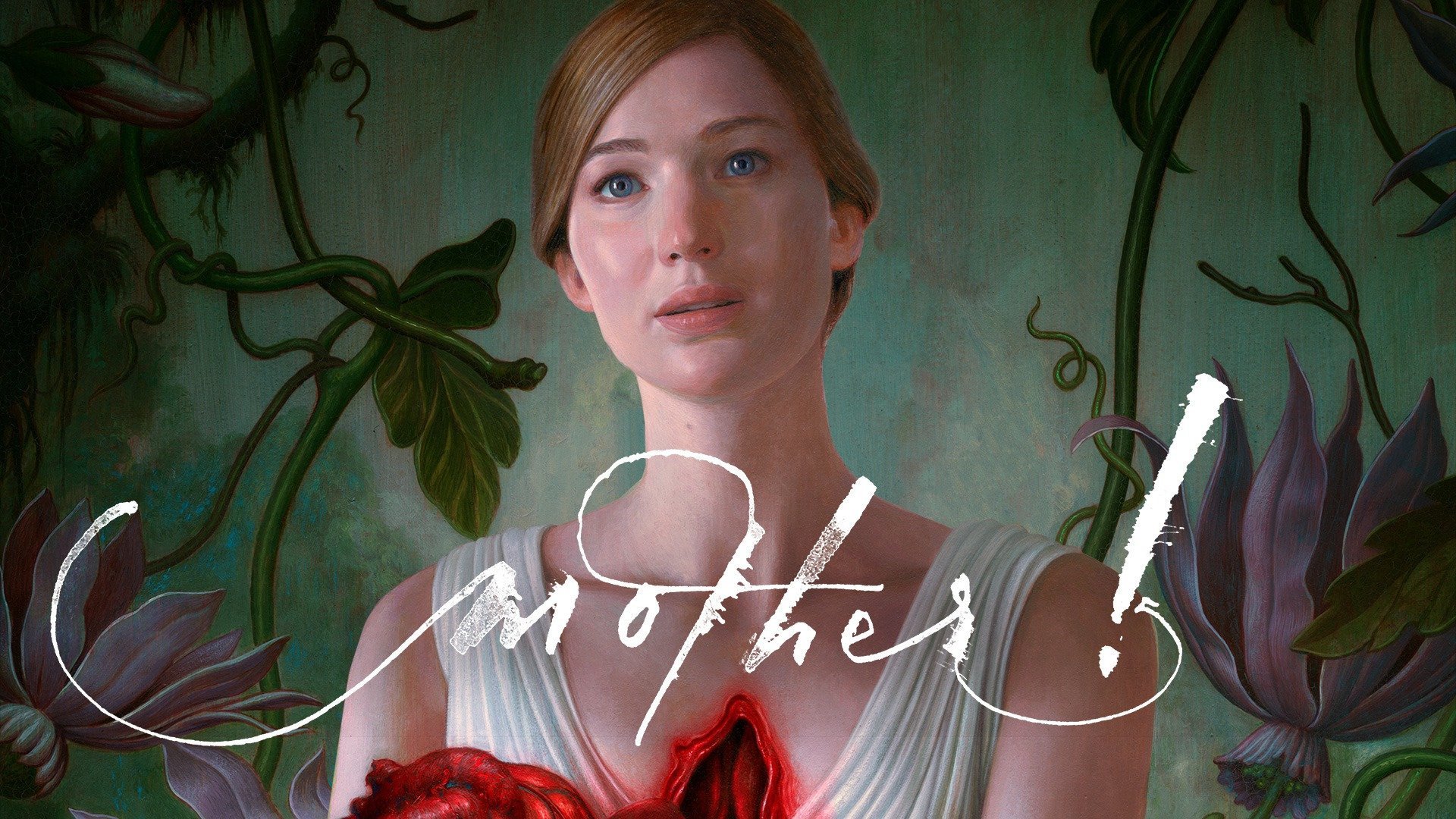
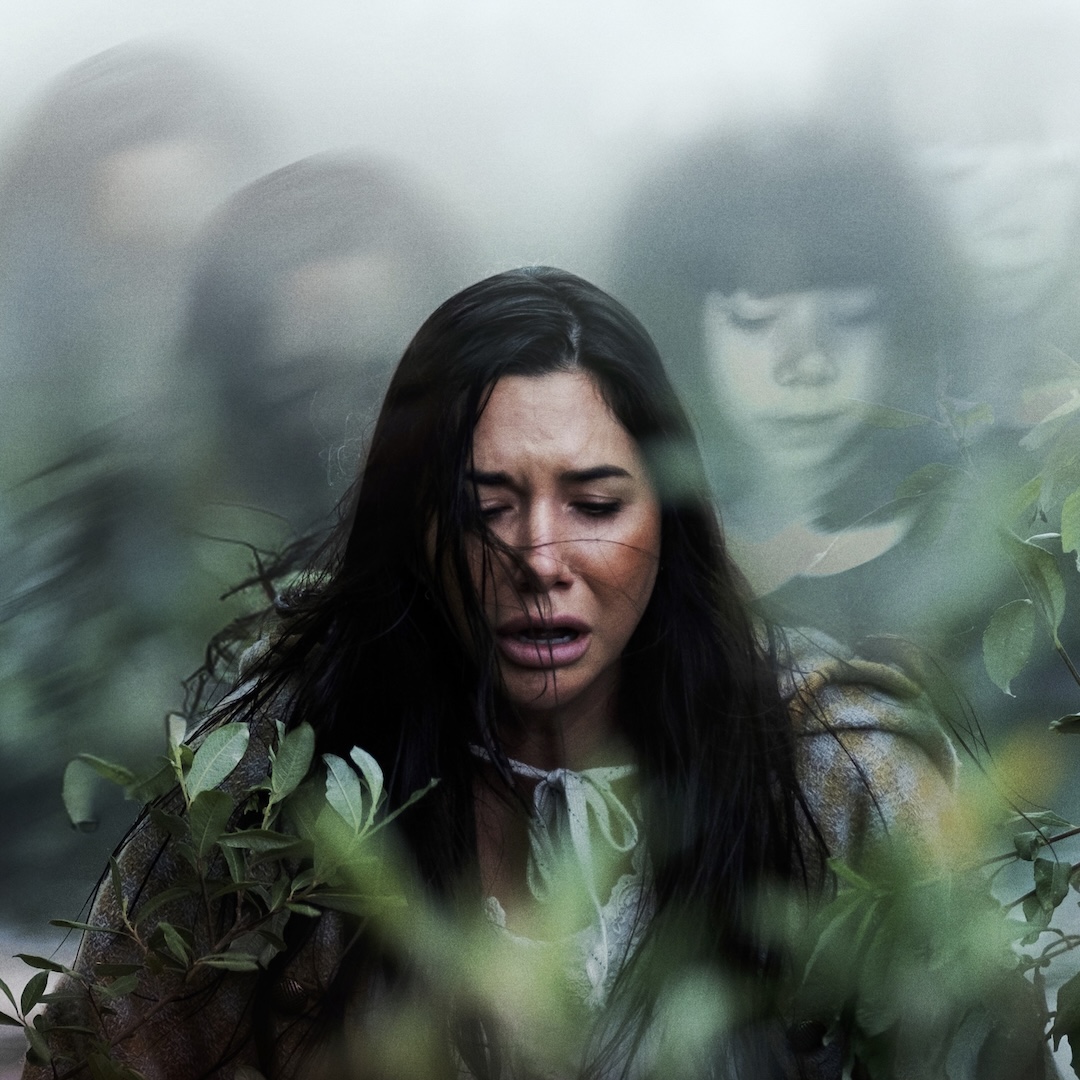



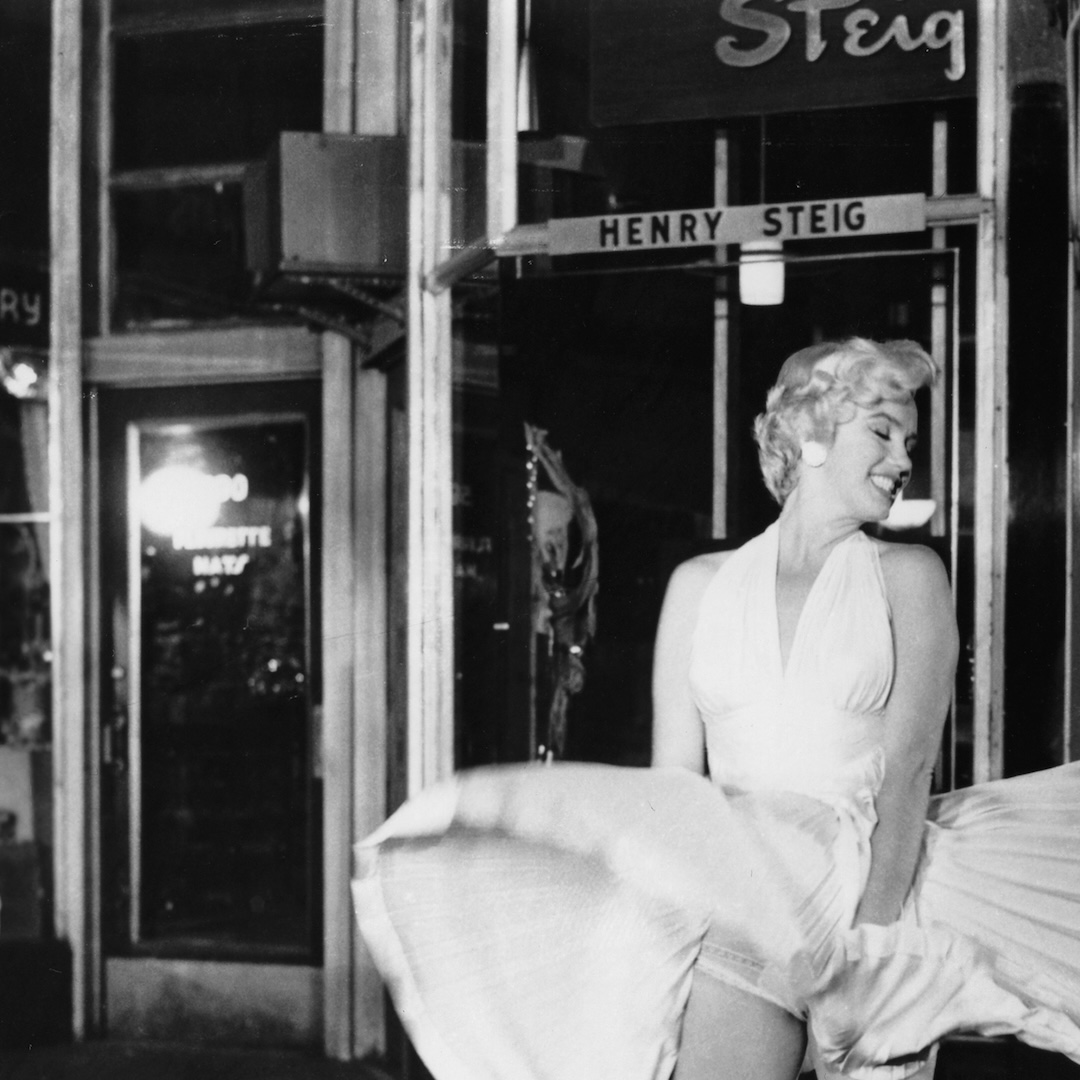
 Follow us on Instagram
Follow us on Instagram